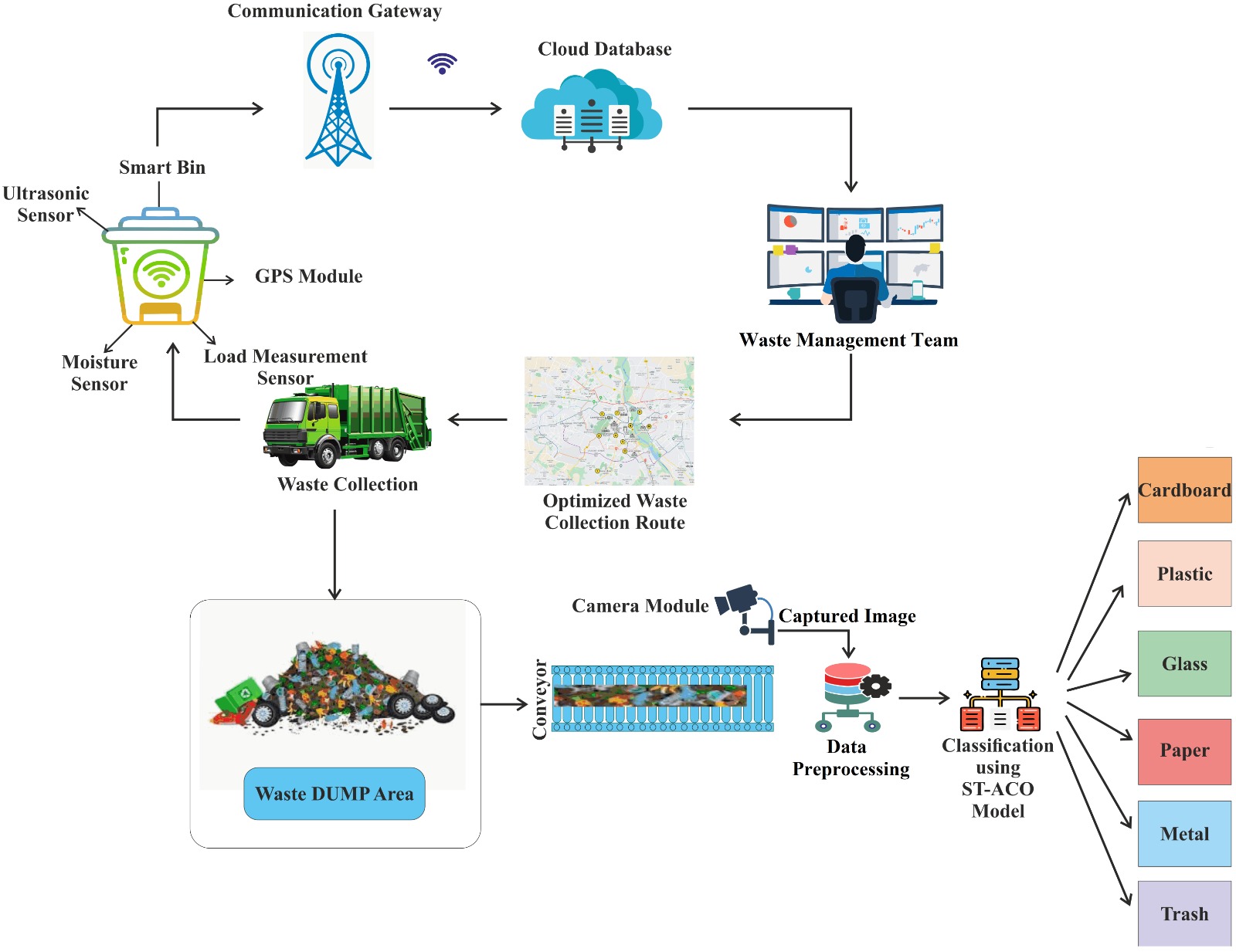
The primary issue related to applications of smart cities is Solid Waste Management (SWM), which may be harmful to public health and the environment. Management of waste includes the disposal of trash through recycling and landfilling. SWM is a significant and challenging issue for ecosystems globally. Consequently, it is essential to develop an effective methodology to eradicate these problems or, mitigate them to a minimal extent. This study develops an IoT-based SWM model using Swin Transformer (ST) v2 for waste classification and optimization algorithm for the route optimization process. Initially, the TrashNet dataset is collected to train and evaluate the research model. The real-time data from IoT-based sensors are preprocessed and analyzed in the waste management process. The Swin Transformer V2 is utilized for image classification. To improve the precision of the routing process, the Ant Colony Optimization (ACO) algorithm is employed. The evaluation of the research model was conducted based on parameters including accuracy, recall, f1-score, and precision. The proposed model also demonstrates exceptional accuracy (99.52), precision (99.10%), recall (98.86%), and F1-score (99.38%). These results were compared and validated with other models discussed in the literature review, and as compared, the research model outperformed all the other models.
Total file downloads: 53